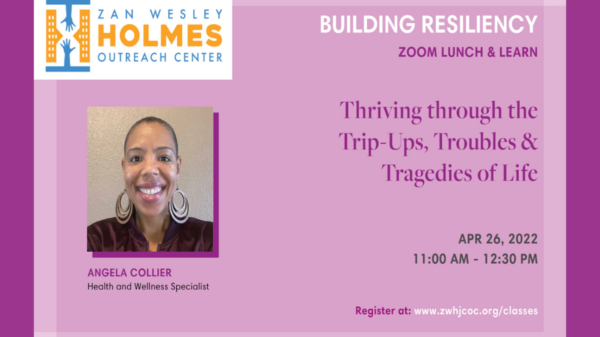By Dominique Fluker
From – https://www.essence.com/
Reprinted – by Texas Metro News

Last Thursday, Snoop Dogg’s 24-year-old daughter, Cori Broadus, shared with her fans and supporters that she unfortunately suffered a stroke.
Broadus revealed on her Instagram story that the stroke was “severe,” and she started to “break down crying” when she was privy to what happened. “Like, I’m only 24. What did I do in my past to deserve all of this,” she wrote in another Instagram story. Over the weekend, Brodaus provided a health update to her Instagram followers, first thanking them for the love and support and saying she’ll be home from the hospital soon. “Again I’m human and I go thru [sic] shit like everybody else which is why I’m so open about my life because I know I feel alone,” she wrote on her Story. “But we are never alone someone is always going thru [sic] damn near the same. Still here hoping to be home soon.”
Article continues after video.
WATCH: In My Feed – Why Are Black Women at Higher Risk for Stroke?
Snoop Dogg’s 24-year-old daughter, Cori Broadus, shared with her fans and supporters that she unfortunately suffered a stroke. Stroke rates among young adults have risen in recent decades.
https://imasdk.googleapis.com/js/core/bridge3.626.0_en.html#goog_187503723
Broadus isn’t alone, as each year, more than 795,000 Americans suffer a stroke, and about 140,000 of those people will die, according to the CDC. Non-Hispanic Black adults and Pacific Islander adults have the highest rates of death due to stroke. But why are Black women at higher risk for stroke? According to the CDC and the Alabama Department of Public Health, there are several factors. According to the American Heart Association, Black young adults are almost four times more likely than their white counterparts to have a stroke, according to new research. Yet regardless of race, the risk of having a stroke at a younger age increased as blood pressure rose. High blood pressure is the leading cause of stroke. It adds to the heart’s workload and, over time, damages arteries and organs. Experts already knew stroke rates among young adults have risen in recent decades, but little was known about which adults were at higher risk.
High blood pressure, a primary risk factor for stroke, often starts at a younger age and is more severe in Black women than in white women.
Overeating salt or sodium can raise your blood pressure, putting you at higher risk of stroke. Some researchers think Black Americans may be more sensitive to the effects of salt, which in turn increases the risk of developing high blood pressure.
Sickle cell anemia is the most common genetic disorder in Black Americans and can lead to a stroke. Strokes can occur when sickle-shaped cells block blood vessels in the brain.
Black women tend to have higher rates of obesity and diabetes, which increases the risk of high blood pressure and stroke. As an African-American woman, you may have some of the health problems that can lead to a stroke without even knowing it.
What is a stroke? A stroke occurs when something blocks the blood supply to part of the brain or when a blood vessel in the brain bursts.
In either case, parts of the brain become damaged or die. A stroke can cause lasting brain damage, long-term disability, or even death.
What are the symptoms of a stroke?
- Sudden numbness or weakness in the face, arm, or leg, especially on one side of the body.
- Sudden confusion, trouble speaking, or difficulty understanding speech.
- Sudden trouble seeing in one or both eyes.
- Sudden trouble walking, dizziness, loss of balance, or lack of coordination.
- Sudden severe headache with no known cause.
According to the CDC, if you get to the hospital within three hours of the first symptoms of an ischemic stroke, you may get a type of medicine called a thrombolytic (a “clot-busting” drug) to break up blood clots. Tissue plasminogen activator (tPA) is a thrombolytic.
tPA improves the chances of recovering from a stroke. Studies show that patients with ischemic strokes who receive tPA are more likely to recover fully or have less disability than patients who do not receive the drug. Patients treated with tPA are also less likely to need long-term care in a nursing home.
Doctors may also treat ischemic stroke with other medicines, such as blood thinners, as well as surgery to remove the clot.
Treating Hemorrhagic Stroke
Other medicines, surgery, or procedures may be needed to stop the bleeding from hemorrhagic stroke and save brain tissue. For example,
Medicine, surgery, or other procedures may be needed to stop the bleeding and save brain tissue. For example:
- Endovascular procedures. Endovascular procedures, which can help repair a weak spot or break in a blood vessel, may be used to treat specific hemorrhagic strokes. Learn more about the procedure.
- Surgical treatment. Hemorrhagic strokes may be treated with surgery. If a ruptured aneurysm causes the bleeding, a metal clip may be put in place to stop the blood loss.
How to prevent stroke? You can help reduce your risk of stroke by making healthy changes. These are the most important steps you can take to lower your risk of stroke:
- Keep your blood pressure in the normal range
- If you smoke, quit
- Keep your blood sugar (glucose) in the normal range
- If you have heart disease, get treatment
- Keep your cholesterol levels in the normal range
- Stay at a healthy weight
- Get active
- Eat healthy







You must be logged in to post a comment Login